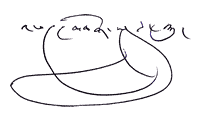Dear friends near and far,
As always, I hope this message finds you well, healthy and happy. On today’s Guru Rinpoche day, I would like to share with you my understanding of the well-known Four Dharmas of Gampopa:
Please bless me that my mind may turn towards the Dharma;
That the Dharma may become the path;
That the path may dispel delusion;
And that delusion may dawn as wisdom!
These words can be applied to whatever practice we are engaging in. For instance, when cultivating compassion, we first need to really understand compassion through study and reflection. As we learn what it means to have a good heart, our mind turns toward the Dharma.
Having engaged in study and contemplation, we then need to apply what we have learnt in our practice. In this case, we engage in various techniques to cultivate compassion. Thus, the Dharma becomes the path.
Through our practice, compassion then becomes an antidote to the afflictions, such as anger, unhappiness, and so on. It becomes an antidote to self-clinging and suffering. This is the path dispelling delusion.
Finally, as our practice grows stronger, we arrive at a point where anything that arises, such as anger or any other negative emotion, all becomes a condition for our compassion to grow, and never to decline. This is when delusion itself dawns as wisdom.
To summarize, study and reflection of the teachings turn the mind towards the Dharma. Applying what we have learnt in practice makes the Dharma into the path. When our practice acts as an antidote to the afflictions, the path is dispelling delusion. And when whatever arises on the path, any obstacle or condition, becomes an aid to our practice, delusion is dawning as wisdom.
This is my own understanding of the Four Dharmas of Gampopa, and I hope you find it helpful in your own practice. Please apply yourselves to the Dharma, to cultivating a kind heart, faith, and all other good qualities.
With all my love and prayers,
Sarva Mangalam.

Phakchok Rinpoche
Translations
简体中文
繁體中文
Français
Deutsch
Ελληνικά
Bahasa Indonesia
नेपाली
Português
Русский
Español
ภาษาไทย
Українська
Tiếng Việt






Responses